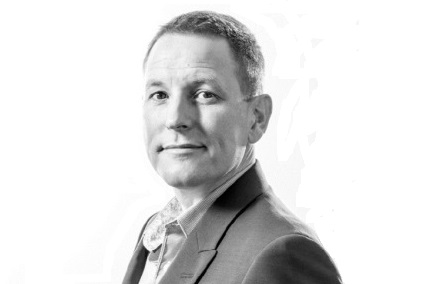Richard Robinson, of Oystercatchers, a specialist marketing consulting firm, describes 2014 as a seminal year. “Revenues were up by a third and we increased staff levels by a quarter. We are quietly confident of continued momentum.”
Richard comments that Oystercatchers’ conversations with Chief Executives increasingly focus on the importance of transforming their marketing functions, specifically through integration of Digital and new technologies, as a route to growth.
“In 2014, many firms recognised that they were in that uncomfortable midpoint position on Digital transformation.” CEOs realised they had pre-Digital legacy systems led by the same people who put those systems in place. “As Digital has advanced, there’s been a tendency to create parallel systems, keeping Digital on the outside.” Richard believes that ultimately this approach will fail to deliver the necessary change and will simply serve to perpetuate the situation where traditional business can be easily usurped and overtaken by new-wave companies with digital at their core.
“Business needs to work out how to extract the parallel thinking and match new enterprises that have hired Digital natives and embraced Digital systems to create fresh ways of thinking unencumbered by outmoded capabilities. Successful businesses have the innovation, intelligence and product to catch up with, overtake, and exceed the expectations of their customers. Uber, Air BnB and Netflix are strong examples with Digital at the epicentre of everything they do and have already won.”
Growth, in Richard’s view, is about embracing and harnessing Digital to liberate brands and businesses to create new orders of value for customers. “Lego are still famous for making toy bricks. But their whole brand proposition has expanded to keep pace with their customers, young and old, and they now have a seamless product on and offline. They have created a Digital Lego space that is as much loved as the traditional offline brick. This relates to and ultimately reinvents the Lego brand image, so that when we think of Lego now, we think as much of brilliant animation, film, games or music as we do buckets of bricks.”
For Oystercatchers, success comes from brave CEOs and CMOs taking the bold and necessary step to reinvent their existing, legacy-driven business models.
“Change has happened. Past tense. The first step as a CEO is to recognise that yesterday’s science fiction is today’s normalcy.”
Some of this is about new modes of operating, like cognitive outsourcing and programmatic media sales (automated marketing based on social media patterns), to enable staff to be free to innovate.
“The willingness to innovate across traditionally non-Digital business sectors is uneven. Fast-moving consumer goods companies are at the sharp end, and have been delivering real innovations for some time. Yet much more could be done. “Big banks for instance need to be thinking about what digitally savvy 10-15 year olds will want from them in a few years’ time in order to engineer the next First Direct style transformations. Kids won’t want change in their pockets. They’ll want to pay with a Smartphone. Niche players such as Osper are already out-manoeuvring banks with a striking model whereby they have eliminated pocket money as we know it. The response from kids is that they love it!”
Oystercatchers’ mix of growth-supporting activities equally spans helping businesses getting ready for growth and helping businesses who need new propositions and models. “Some assignments deal with new business phenomena, trends and customer needs. We’re increasingly seeing marketing overlapping with Big Data and businesses using their data and information to build new orders of value. Procter & Gamble’s Golden Households (an online community offering advice, tips and help) operates through a value-exchange that allows members to receive offers and coupons in return for greater their loyalty and interaction. ”
Richard sees only one major challenge for Oystercatchers. “The challenge we all face is finding and hiring the best talent with the right skills. Our ideal person is quasi-creative consultant, quasitech evangelist and quasi-strategic leader who can effortlessly speak the language of the Boardroom. Few people have all this eclectic mix of skills and we have to work hard to proactively identify, select and hire the consultants of tomorrow today.”
Richard Robinson was interviewed for the MCA's report 'UK Consulting Industry Statistics 2015', and as part of the MCA Year of Digital.


